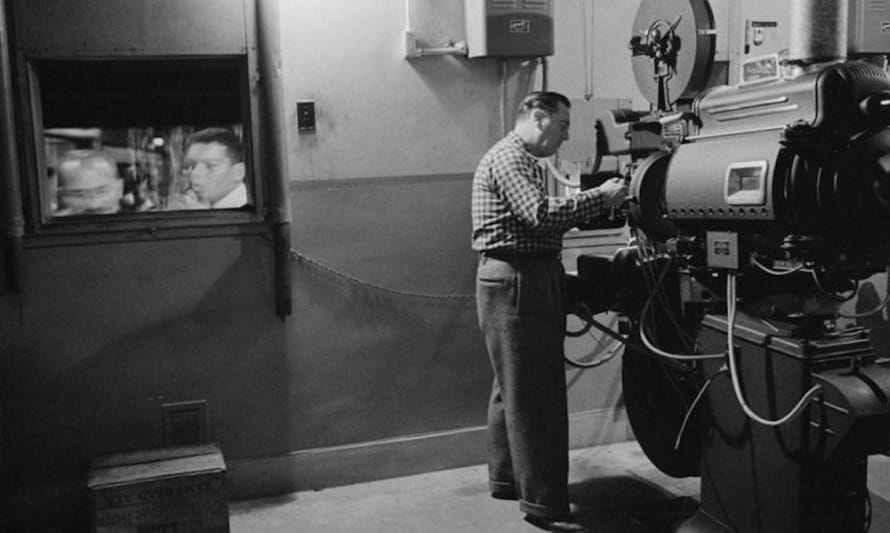
Switching the Projectors Back On
For cinema operators in England, 4th July was meant to be a red letter day. That was the date cinemas were given the go-ahead to reopen under government guidelines, following months of closure due to the ongoing global pandemic. Yet for lots of venues, it’s not been so simple. Whilst some cinemas are already up and running, with social distancing still in place, the numbers just don’t add up for many places, meaning they’re still waiting to welcome back audiences.
One of those venues is the Light House in Wolverhampton. Before the pandemic hit, audience numbers were at a recent high, but this important part of the Midlands’ cultural landscape faces an uncertain future. Emergency funding has been crucial for its survival, but plans for an early September opening have been put on hold as chief executive Kelly Jeffs and her team work out the best way to reopen the Light House without putting the business further at risk.
‘We received a grant from the local authority,’ says Jeffs, ‘plus we sourced a bounce back loan and the BFI have supported some ongoing fixed costs. All these pots have been absolutely critical in bridging the gap of suddenly having zero income. But this situation is going on longer and longer. So far we are projecting a loss of turnover of around £280,000 over the last four months. The pots of money have been helpful, of course, but compared to the loss of income, it's nowhere near a replacement.’
Just as hard is putting together a tempting film programme to entice cautious audience members. Big new films keep getting bumped to 2021 by worried studios, ‘so trying to put together a quality and exciting programme for audiences to come back to is like trying to plait fog at the moment.’ Jeffs is also concerned about when exactly older audience members will feel safe to return. ‘I am worried that some of our loyal members may not return for the foreseeable future, and that’s totally understandable. But that will only make us work harder than we already do to encourage younger audiences to engage with us.’
But while Jeffs can only make predictions about the future, over at the Bonington Theatre in Nottingham - one of the few Midlands venues to have already reopened - they already have an idea of how audiences are responding. Usually offering a mix of film screenings and live performances, pandemic restrictions on live events mean that the council-run Bonington is, for now, solely a cinema. ‘It’s been fairly smooth sailing so far,’ says assistant theatre manager Jeremy Arblaster. ‘We have a very supportive audience in general and it’s been really nice to see lots of familiar faces come back. There’s been a level of caution, but we’re getting a lot of repeat bookers now. We spent a while getting the safety measures in place, so our hard work has really paid off.’
Talking about those safety measures, it becomes clear just how limiting social distancing can be for smaller venues like the Bonington. They might be open, but they’re nowhere near full capacity. ‘We’ve gone from 178 tiered seats to just 24 seats, with chairs and sofas all on the same level, spaced two metres apart.’ And what of the audience numbers? ‘The numbers have been a bit lower than we expected, but we did have a few sell outs in the first month. Whilst a sell-out is only 24 people, what that told us was there certainly is an audience out there. And we’re already seeing people book for the new releases, which is encouraging.’
What’s clear is that getting audiences back will be a long process, one hampered further by the changing media landscape. With cinemas closed, companies like Disney have sent big family films like Artemis Fowl and Mulan direct to streaming services. Yet Jeffs makes a salient point, namely that ‘not everyone has access to streaming services’ like Netflix and Disney+. To lots of people, venues like the Bonington Theatre and the Light House aren’t just places where they can sit and watch a film - they are essential parts of their communities. ‘For many customers, it’s not just ‘watch the film and go home,’ says Jeffs. ‘They come to meet friends here, socialise and spend time talking about the film they've just experienced.’
It’s worth remembering that. For all the media focus on big corporations battling it out over intellectual property, the real battle over the next year and beyond will be for something entirely different. There’s no question that the films themselves are the lifeblood of moviegoing - but the real soul of cinema lies with the people watching them.